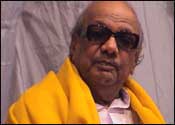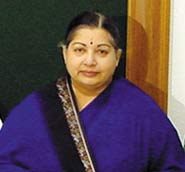BOOKS FOR YOU TO READ AND DOWNLOAD
- English in India: Loyalty and Attitudes by
Annika Hohenthal, Ph.D. - Language In Science by
M. S. Thirumalai, Ph.D. - Vocabulary Education by
B. Mallikarjun, Ph.D. - A CONTRASTIVE ANALYSIS OF HINDI AND MALAYALAM by V. Geethakumary, Ph.D.
- LANGUAGE OF ADVERTISEMENTS IN TAMIL by Sandhya Nayak, Ph.D.
- An Introduction to TESOL: Methods of Teaching English to Speakers of Other Languages by M. S. Thirumalai, Ph.D.
- Transformation of Natural Language into Indexing Language: Kannada - A Case Study by B. A. Sharada, Ph.D.
- How to Learn Another Language? by M.S.Thirumalai, Ph.D.
- Verbal Communication with CP Children by Shyamala Chengappa, Ph.D. and M.S.Thirumalai, Ph.D.
- Bringing Order to Linguistic Diversity - Language Planning in the British Raj by
Ranjit Singh Rangila,
M. S. Thirumalai,
and B. Mallikarjun
REFERENCE MATERIAL
- Lord Macaulay and His Minute on Indian Education
- Languages of India, Census of India 1991
- The Constitution of India: Provisions Relating to Languages
- The Official Languages Act, 1963 (As Amended 1967)
- Mother Tongues of India, According to 1961 Census of India
BACK ISSUES
- FROM MARCH 2001
- FROM JANUARY 2002
- INDEX OF ARTICLES FROM MARCH, 2001 - APRIL 2003
- INDEX OF AUTHORS AND THEIR ARTICLES FROM MARCH, 2001 - MARCH 2003
- E-mail your articles and book-length reports to thirumalai@bethfel.org or send your floppy disk (preferably in Microsoft Word) by regular mail to:
M. S. Thirumalai
6820 Auto Club Road #320
Bloomington, MN 55438 USA. - Contributors from South Asia may send their articles to
B. Mallikarjun,
Central Institute of Indian Languages,
Manasagangotri,
Mysore 570006, India or e-mail to mallikarjun@ciil.stpmy.soft.net - Your articles and booklength reports should be written following the MLA, LSA, or IJDL Stylesheet.
- The Editorial Board has the right to accept, reject, or suggest modifications to the articles submitted for publication, and to make suitable stylistic adjustments. High quality, academic integrity, ethics and morals are expected from the authors and discussants.
Copyright © 2001
M. S. Thirumalai
LANGUAGE NEWS THIS MONTH
The Politics of Language Education
PACIFIERS GALORE!
M. S. Thirumalai, Ph.D.

1. SOMETHING INTERESTING IS BREWING!
Something interesting is brewing in the field of language education in Tamilnadu. The Education Minister in the AIADMK Government in Tamilnadu led by Ms. Jayalalithaa recently announced that Scientific Tamil will be a compulsory subject up to class V in all schools in Tamilnadu.
The Madras High Court, a few years ago, set aside the DMK government's decision to make Tamil a compulsory subject and medium of learning in all schools of Tamilnadu, private or public, in the early stages of elementary school education. The English medium schools run by private organizations challenged the government's decision.
2. THE MADRAS HIGH COURT JUDGMENT
The Hon'ble Judges of the Madras High Court took the position that no one could be compelled to study in one particular language and that the parents have the primary responsibility and privilege to choose the medium of instruction for their children. The Court also opined that the U. N. Human Rights conventions agreed to by the Government of India give ample freedom to parents to choose the appropriate medium for their children.
3. POLITICS OF OPPOSITION
At that time, Ms. Jayalalithaa, the present Chief Minister, was in the Opposition, and, in so many subtle and not so subtle ways, her pronouncements supported and encouraged the position of the private educational institutions. The DMK government appealed against this decision of the Madras High Court, and the matter is pending with the Supreme Court, being pursued for a favorable decision in support of Tamil medium, by the present ADMK government led by Ms. Jayalalithaa also.
4. NOVEL AND INNOVATIVE SCORE: THE DAWN OF "SCIENTIFIC TAMIL" IN SCHOOL HORIZON!
Meanwhile, the Government of Tamilnadu led by Ms. Jayalalithaa has come up with a novel and innovative proposal to teach SCIENTIFIC TAMIL as one of the subjects, not against, or within, the language provisions of the curriculum, but as part of the subjects that belong to the III part of the curriculum, which includes such subjects as general science and social studies that are taught to every student. According to the announcement, this would enable (or should I say "force") even those schools that do not teach Tamil at all to teach Tamil in their classes to all students.
5. SOME QUESTIONS
What is Scientific Tamil? How is it going to be delineated and taught to young children? Will this Scientific Tamil be an expression of high-strung written Tamil, or is it going to be based on the simpler logical operations found in all children and noted by psychologists such as Piaget and others? How are these lessons going to be made interesting and useful to young children? Is it advisable that we begin to teach "scientific style" of expression at that early age? How are we going to enthuse and entertain children through "scientific Tamil"? Questions of this nature may be difficult to answer, but I do believe that the idea is worth pursuing in an imaginative manner.
6. THE RELATIONSHIP BETWEEN LANGUAGE ACQUISITION AND SCIENCE ACQUISITION
Elsewhere I've argued that language acquisition is acquisition of science, and likewise science acquisition is language acquisition (Thirumalai, Language in Science, chapter 6).
When we study the characteristics of first and second language acquisition, we find the link between language acquisition and concept formation; between concept formation, folk science, and folk language; between folk language and language of science; and between folk concepts and institutionalized inquiry, etc. One would also find out that the basic features of scientific language and scientific inquiry are linked to language acquisition and the development of cognitive structures.
The first language acquisition processes resemble the processes of scientific investigation. Acquisition of cognitive structures with or without language is definitely akin to processes of scientific investigation. Along with the linguistic and cognitive structures, a child also acquires a belief system, which can and may influence his latter day efforts at scientific descriptions and explanations. The scientist aims consciously at the elimination or reduction of the influence of this belief system upon his scientific work. When the underlying principles of this belief system are in conflict with the principles of scientific investigation or scientific facts, some scientists develop a process of compartmentalization, and for them, religious truths or experiences, worldly experiences, and scientific truths, even when in opposition, may have a validity in their respective spheres. First language acquisition provides the child with a labeling system. If we can understand these labeling processes and the processes of concept formation, we will be able to better appreciate the construction, validation and communication of scientific theories.
7. WHAT SHOULD BE TAUGHT FIRST? A MAVERICK PROPOSAL
Some consider that differences between ordinary English and scientific English, or ordinary Tamil and scientific Tamil, are a matter of additional vocabulary. This position leads them to set their goals, materials, etc., giving priority to and emphasizing the learning of English or Tamil for general purposes. That is, an accurate acquisition of the ordinary language is attempted first. After mastering the ordinary language, the students would learn first of all the vocabulary items required for general scientific statements, and then, the vocabulary items of their fields of specialization. In another approach, a language is taught or mastered while acquiring the knowledge of a discipline, which is through that language. This method had not been seriously practiced in recent times, but it is worth pursuing. Perhaps the mavericks at the Tamilnadu Directorate of (Primary) School Education would like to pursue this path.
This certainly should provide us at least with an opportunity to evaluate our contents, methods, and evaluation of science teaching in Tamilnadu schools, and to make science learning more enjoyable, even if this effort may or may not lead to any real learning of Tamil or "scientific Tamil".
8. SOME PROBLEMS
Note, however, combining language teaching with teaching a subject may lead to a mastery of only that variety of the language that is used for the expression of that particular discipline. Especially in India where both mother tongue and second language teaching is heavily, if not exclusively, literature-oriented, and where language teachers are not well-equipped with a knowledge of the structures of the modern language (used for general and specialist purposes), implementation of teaching science is likely to run into difficulties. Because of these difficulties we may rephrase the question: How can we best teach a language to enable it to be used as an effective tool to acquire and express scientific knowledge? But the educational goal of teaching Scientific Tamil is not yet revealed, although the political goal of such a proposal is somewhat obvious.
9. POLITICS OF LANGAUGE EDUCATION IS POLITICS OF PACIFIER DISTRIBUTION?
The story does not end here. The Hindu reported on the same day in the same news item (April 4) that, "in another major effort at spreading English education among masses, the Government would introduce the language right from Standard I. English as a language was now being taught in government schools only from Standard III. But the government felt that English knowledge was essential for students, right from an early age. Hence, government schools would follow the example of private nursery and matriculation institutions, the Minister announced."
A very interesting scenario, indeed. The cause of Tamil is sought to be achieved by the introduction of a compulsory subject of Scientific Tamil, while at the same time the government is offering a pacifier to the parents who, irrespective of their caste and class backgrounds, clamor for more and extended English education for their children!
HOME PAGE | BACK ISSUES | My daughter and I - Education for the Hearing Impaired | Lexical Choice by Media | Syntactic Categories and Lexical Argument Structure | English in India: Loyalty and Attitudes | Urdu in Maharashtra | Strategies in the Formation of Adjectives in Tamil | Language News This Month: Politics of Language Education | SOME NEW BOOKS IN INDIAN LINGUISTICS | CONTACT EDITOR
M. S. Thirumalai, Ph.D.
Bethany College of Missions
6820 Auto Club Road, Suite C
Bloomington, MN 55438, U.S.A.
E-mail: thirumalai@bethfel.org.


